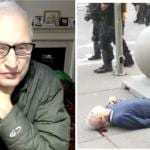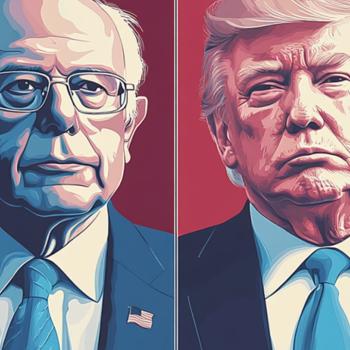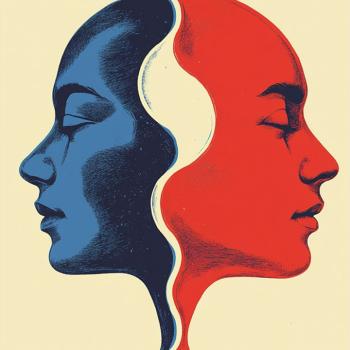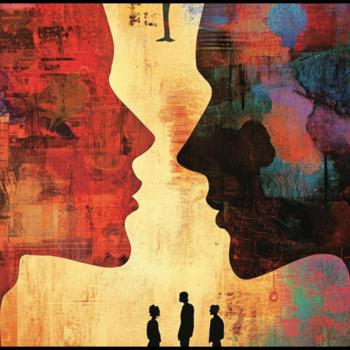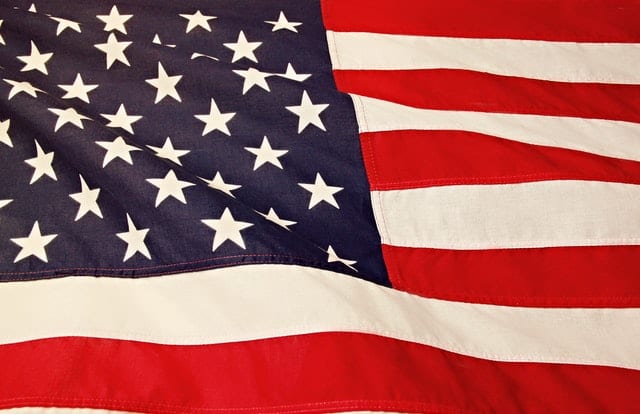
The famous historian, Howard Zinn in his masterful presentation at Boston University, just before his death, spoke about America’s “Holy Wars” and how there are three wars, specifically, no American is ever allowed to criticize.
Those would be: The American Revolutionary War, the American Civil War, and World War II.
The American Revolution can’t be spoken against, he theorizes, because it was about the founding of our nation. It was about freedom, and independence and religious liberty.
The American Civil War can’t be criticized because, he suggests, it’s about freeing the slaves, and Abraham Lincoln and the noble cause of holding our Union together.
World War II cannot be critiqued because it’s about “the Greatest Generation” and stopping Hitler, and rescuing the Jewish people from the Holocaust.
Yet, against the prevailing American sentiment, Zinn does exactly that. He does so, he says, “…to make us reexamine the idea of a good war, to make us reexamine the idea that there’s any such thing as a good war.”
It’s not easy to do, because, as I said, these three wars are “Holy” to Americans.
As Zinn puts it, “all three wars accomplished something. No one would doubt that. I mean, that’s why they’re considered holy…So, so to criticize them is to undertake a heroic task.”
But then Zinn adds: “I only undertake heroic tasks.”
In his speech, Zinn prefaces his criticisms of these three untouchable wars by pointing out that other wars, in contrast, are generally considered bad wars. Wars like Viet Nam, Afghanistan, the Gulf War, Grenada, Panama and practically every other war in history is held in lesser esteem than our 3 “Holy Wars.”
Starting with the Revolutionary War, Zinn points out that the cost of that war in human lives equaled 25,000.
“Did you even know how many lives were lost in the Revolutionary War?” he asks. “It’s hardly worth talking about. [But] in proportion to the population of the colonies [at that time], 25,000 would be equivalent today to two-and-a-half million.” Take that into account for a moment. Was our independence from England worth an equivalent death-toll of two-and-a-half million people? Would you have second thoughts?
Next, Zinn asks “Who did the Revolutionary War benefit?”
He concludes that not everyone benefitted from America’s independence. “There were people right from the outset who knew they wouldn’t benefit from independence,” he says. “There were people who thought, you know, I’m just a working stiff. I’m just a poor farmer. Am I going to benefit? What difference will it make to me if I’m oppressed by the English or oppressed by my local landlord?”
As he explains, “[About] one-third of the colonists were opposed to the Revolutionary War…going by an estimate that John Adams once made.” Because of this, he says, they had a tough time recruiting people to fight. “George Washington had to send a general with troops down south to threaten people in order to get them into the war,” says Zinn.
Certainly, there were many who fought in the Revolutionary War because they felt that independence from England was a noble cause, or perhaps because they were inspired by the words of the Declaration of Independence. No doubt. But many others joined because they were promised something—land.
“They were promised, you might say, a little GI Bill of Rights,” he says. “Just as today recruiting officers make promises to young guys that they want to sign into the Army. They give them bonuses, and they promise them a free education afterward.
No, people don’t naturally rush to war. You have to seduce them. You have to bribe them or coerce them. Some people think it’s natural for people to go to war. Not at all.”
And he’s right. Nations have to work hard to mobilize their citizens to fight in wars. Some rush into the glory of battle out of youthful exuberance. But that alone won’t attract enough soldiers. This is why nations resort to tactics like the draft, or hold out the carrot of free college, or the chance to earn a trade.
The Revolutionary War was no different than any other war in this regard.
“Although there was a draft, there was a kind of conscription that the rich could get out of by paying a certain amount of money,” says Zinn. “But the young, the farmers who went into the Revolutionary Army and who fought and who died and who were wounded in the war, they found that they, the privates, the ordinary soldiers in the war, that they weren’t treated as well as the officers who came from the upper classes.”
Officers were given tailored uniforms and better quality food. They were also paid much better than the lower class soldiers were. “The privates very often did not have shoes and clothes and were not paid,” he says. “And when their time was supposed to be up, they were told they had to stay. There was a class difference in the Revolutionary War.”
Even from the beginning of our nation, the division between rich and poor was very real.
“You know, in this country, we’re not accustomed to the idea of class differences, because we’re all supposed to be one big, happy family. One nation, indivisible,” he says. “[But] we are very divisible. No, we’re not one nation. There are working people, and there are rich people, and in between, yes, there are nervous people.”
Due to the poor conditions that many ordinary farmers and lower class soldiers found themselves in, there were mutinies. Yes, even against General George Washington himself. These mutinies were not few in number, either. They were quite numerous. According to historian Zinn, there were thousands of these mutinies.
But the average American has never been told about these mutinies: “[Did you] ever hear about this in your classrooms when you learned about the Revolutionary War? When you learned about Bunker Hill and Concord and the first shot heard around the world, did you ever hear about the mutinies? I doubt it. I never learned about it. I didn’t learn about it in elementary school or high school or college or graduate school. You find very often that what you learn in graduate school is what you learned in elementary school, only with footnotes.”
As you might expect, Washington was concerned about these mutinies. So, he had to make concessions.
In what was called the Pennsylvania Line mutiny, where thousands of soldiers threatened to riot, Washington had to quell the uprising without using violence. He did so by promising these soldiers things like extra pay and the chance to leave the army early. In that case concessions worked.
But then came the New Jersey Line mutiny. This one was only a few hundred soldiers, and because of the smaller size of the mutiny, things went differently: “There, Washington put his foot down. He couldn’t handle the thousands in the Pennsylvania Line, but he could handle the hundreds in the New Jersey Line, and he said, ‘Find the leaders and execute them.’ Did you ever hear about this in your classrooms about the Revolutionary War? Did you hear about the executions of mutineers? I doubt it. I’m willing to stand corrected. I don’t like to stand corrected, but I’m willing to be corrected. And, so they executed a number of the mutineers. Their fellow soldiers were ordered to execute the mutineers.”
When the Revolutionary War was over, and the rebels won, those soldiers who survived came back home. Some of them did indeed receive the lands that they were promised. Many became farmers again. But then they got a very big surprise: “They found that they were being taxed heavily by the rich, who controlled the legislatures. They couldn’t pay their taxes, and so their farms and their homes were being taken away from them, auctioned off. “Foreclosures” they call them today.” This led to Shay’s Rebellion in western Massachusetts. Here, thousands of farmers stood up to their newfound American Government.
“Thousands of farmers gathered around courthouses in Springfield and Northampton and Amherst and Great Barrington, and they stopped the auctions from going on. They prevented the foreclosures. It was a real rebellion that had to be put down by an army, paid for by the merchants of Boston. It was put down, but it put a scare into the Founding Fathers.”
Shays’ Rebellion took place in 1786 and in 1787 the Founding Father came together for the Constitutional Convention. Zinn thinks that there might be: “I don’t remember ever learning that there was a connection between Shays’ Rebellion and the Constitution. What I learned is that they got together because the Articles of Confederation created a weak central government, that we needed a strong central government. Everybody likes the idea of a strong central government, so it was a great thing to have a Constitutional Convention and draft the Constitution. [But] what you were not told, I don’t think—I wasn’t told—was that the Founding Fathers on the eve of the Constitutional Convention were writing to one another and saying, ‘Hey, this rebellion in western Massachusetts, we better do something about that. We better create a government strong enough to deal with rebellions like this.’ [And] that’s why we need a strong central government.”
General Henry Knox of Massachusetts, who had been in the army with George Washington, wrote to him about those that fought in the war against England and said that they believed that they deserved an equal share of the wealth of this country. To contend with that, the idea of a strong central government was seen as a solution to put down that sort of thinking, and to deal with the Native Americans, and to respond to possible slave revolts. “That’s what a strong central government is for,” says Zinn. “The Constitution was a class document written to protect the interests of bondholders and slave owners and land expansionists. So the outcome of the Revolution was not exactly good for everybody, and it created all sorts of problems.”
Of course, slaves did not benefit from the Revolution.
“There was slavery before the Revolution; there was slavery after the Revolution. In fact, Washington would not enlist black people into his army. The British enlisted blacks before Washington did,” he reminds us. Native Americans did not benefit from the Revolutionary war either. “The British had set a line called the Proclamation of 1763, at the Appalachians, where they said, no colonists should not go beyond this line into Indian territory. They didn’t do it because they loved the Indians. They just didn’t want trouble. So, they set a line. [But when] the British are gone, the line is gone, and you can now move westward into Indian territory. And you’re going to move across the continent. And you’re going to create massacres. And you’re going to take that enormous land in the West away from the Indians who live there.”
Of course, this is exactly what happened after the Revolutionary War. Millions of Native Americans were killed over the next few decades. But the best question Zinn asks is this: “Is it possible that we would have won independence without a war?” Most Americans never consider this. It is simply assumed that war was and is the only way for anyone to gain their independence. But is this true? History says otherwise.
Take Canada for example. “Canada is independent of England,” says Zinn. “They did not fight a bloody war. It took longer. But, you know, sometimes it takes longer if you don’t want to kill. Violence is fast. War is fast. And if you don’t want killing, you may have to take more time in order to achieve your objective. And actually, when you achieve your objective, it might be achieved in a better way and with better results, and with a Canadian health system instead of American health system.”
Next, let’s turn to the second “Holy War”—the American Civil War.
Zinn admits that it’s tougher to critique the Civil War because slavery is so evil. But the human cost was staggering: 600,000 lives lost. He references a book by Drew Gilpin Faust, the president of Harvard, which was about the Civil War. In this book, she concentrates on the human consequences of the Civil War. Taking into account not only the dead, but the thousands wounded, and the enormous number of amputations performed in the field without anesthetic. “I’m trying to make the cost of the war more than a statistic, because we have gotten used to just dealing with statistics. The statistics are—you know, meaningless. They’re just numbers. Six hundred thousand—just read it and go quickly past it. But no, I don’t want to go past the cost of these wars. I want to consider them very, very, very closely and rack it up and don’t forget about it, even as you consider the benefits of the war, the freedom of the slaves.” But what happened to those slaves after the war? Were they really freed? Yes, they were freed. “But they were also given promises—forty acres and a mule—so they could be independent,” says Zinn. “But, they weren’t given anything. They were left without resources. And the result was they were still under the control of the plantation owner. They were free, but they were not free. They were like serfs on a feudal estate. They were tenant farmers. They were sharecroppers. They couldn’t go anywhere. They didn’t have control of their lives. And they were in the thrall of the white plantation owners. The same white plantation owners who had been their masters when they were slaves were now their masters when they were serfs.”
Certainly this situation was an improvement over being treated like property and beaten and sold like animals. But to say that the slaves were set free can be quite misleading. “Promises made to them were not kept, as promises made during wartime are always betrayed,” Zinn says. “The veterans were betrayed. The civilians were betrayed. The people who expected war to produce great results and freedom and liberty, they are betrayed after every war.”
Again, Zinn asks the same powerful question: Is it possible that slavery might have ended without 600,000 dead?
Without a nation of amputees and blinded people? England ended slavery without any bloodshed. Why couldn’t we have done the same? Perhaps for the same reasons as we fought the Revolutionary War—because it was faster than working to change the hearts of and minds of the American people one at a time. It was quicker to rally an army and form battalions than it was to work towards a more peaceful solution. This could be a valuable lesson for Christians today who seek to solve our society’s problems faster rather than to seek a more peaceful, transformational path towards change that begins in the hearts of our neighbors rather than in the courts of law or the legislative branch.
Finally, let’s look at the last “Holy War”—World War II.
Zinn admits that he himself fought in that “Good War”: “I became a bombardier in the Air Force,” he says. “I dropped bombs on Germany, on Hungary, on Czechoslovakia—even on a little town in France three weeks before the war was to end, when everybody knew the war was to end and we didn’t need to drop any more bombs, but we dropped bombs. On a little town in France, we were trying out napalm, the first use of napalm in the European theater. I think by now you all know what napalm is. One of the ugliest little weapons. But trying it out, and adding metals. And who knows what reason, what complex of reasons, led us to bomb a little town in France, when everybody knew the war was ending? And yes, there were German soldiers there, hanging around. They weren’t doing anything, weren’t bothering anybody, but they’re there, and it gives us a good excuse to bomb. We’ll kill the Germans, we’ll kill some Frenchmen, too. What does it matter? It’s a good war. We’re the good guys.
“One thing—and I didn’t think about any of this while I was bombing. I didn’t examine: who are we bombing, and why are we bombing, and what’s going on here, and who is dying? I didn’t know who was dying, because when you bomb from 30,000 feet, well, this is modern warfare; you do things at a distance. It’s very impersonal. You just press a button, you know, and somebody dies. But you don’t see them. So I dropped bombs from 30,000 feet. I didn’t see any human beings. I didn’t see what’s happening below. I didn’t hear children screaming. I didn’t see arms being ripped off people. No, I just dropped bombs. You see little flashes of light down below as the bombs hit. That’s it. And you don’t think. It’s hard to think when you’re in the military. Really, it’s hard to sit back and examine, ask what you’re doing. No, you’ve been trained to do a job, and you do your job.”
Zinn’s personal testimony recalls that of Kurt Vonnegut’s book, Slaughterhouse-Five, about the bombing raid on the city of Dresden where 100,000 people were killed in a single night.
“I didn’t know until afterward that 600,000 German civilians were killed by our bombing,” says Zinn. “They weren’t Nazis. Well, yeah, you might say they were passive supporters and that they didn’t rebel. Well, a few rebelled. But how many Americans rebel against American wars? Are we all complicit for what we did in Vietnam, killing several million people? Well, maybe we are, but there was a kind of stupid, ignorant innocence about us. And the same thing was true of the Germans.”
Eventually, we have to talk about Hiroshima and Nagasaki.
“I had no idea what it meant until I read John Hersey’s book on Hiroshima,” says Zinn.
“John Hersey had gone into Hiroshima after the bombing, and he had talked to survivors. Survivors? You can imagine what those survivors looked like. They were kids and old people and women and all sorts of Japanese people. And they were without arms or legs, or they were blinded, or their skin could not be looked at. John Hersey interviewed them and got some idea and reported—he was a great journalist—he reported what the bombing of Hiroshima was like to the people who were there. And when I read his account, for the first time, I understood. This is what bombing does to human beings. This is what my bombs had done to people.” Of course, we can all tell ourselves that these atrocities were necessary to defeat a monster like Hitler and the Third Reich. But in so doing we refuse to admit that we became an even bigger monster with the ability to kill even more people with even larger bombs and missiles and weapons of mass destruction on a global scale.
“War poisons everybody,” says Zinn. “War corrupts everybody. And so, the so-called good guys begin behaving like the bad guys. The Nazis dropped bombs and killed civilians in Coventry, in London, in Rotterdam. And we drop bombs and kill civilians, and we commit atrocities, and we go over Tokyo [and drop bombs] several months before Hiroshima.
“I’ll bet you 90 percent of the American people do not know about the raid of Tokyo. Everybody has heard about Hiroshima. Several months before Hiroshima, we sent planes over Tokyo to set Tokyo afire with firebombs, and 100,000 people died in one night of bombing in Tokyo. Altogether we killed over half a million people in Japan, all civilians. And some people said, “Well, they bombed Pearl Harbor.” That’s really something. These people did not bomb Pearl Harbor. Those children did not bomb Pearl Harbor. But this notion of violent revenge and retaliation is something we’ve got to get rid of.”
Lest we believe the propaganda that those bombs on Tokyo, and Hiroshima and Nagasaki had to be dropped in order to end the war, our own official investigations say otherwise.
“We didn’t have to invade Japan in order for Japan to surrender. Our own official investigative team, the Strategic Bombing Survey, which went into Japan right after the war, interviewed all the high Japanese military, civilian officials, and their conclusion was Japan was ready to end the war. Maybe not the next week, maybe in two months, maybe in three months. “Oh, no, we can’t wait. We don’t want to wait. We’ve got these bombs. We’ve got to see what they look like.”
Zinn continues: “Do you know how many people die because of experimentation with weapons? We were experimenting. We were experimenting on the children of Hiroshima.
“Let’s see what this does. Hey, and also, let’s show the Russians. Let’s show the Russians we have this bomb.” A British Scientist who was an adviser to Churchill called the dropping of the bomb on Hiroshima ‘the first step of the Cold War.’”
As we’ve already said, World War II is one of those wars we feel accomplished something noble, and so we consider it to be untouchable.
But was this war necessary? Was it truly the best alternative?
Zinn answers, “Yeah, [WW II] got rid of Hitler, got rid of Mussolini. But did it get rid of fascism in the world? Did it get rid of racism in the world? Did it get rid of militarism in the world? No, you now had two superpowers arming themselves with nuclear weapons, enough nuclear weapons that if they were used, they would make Hitler’s Holocaust look puny. And there were times, in fact, in the decades that followed when we came very, very close to using those nuclear weapons…That’s what war does. War poisons people’s minds. So we got rid of Hitler. But what was the world like?
“When I was discharged from the Air Force, I got a letter from General Marshall. He was the general of generals. It was a letter that was sent to 16 million men who had served in the Armed Forces, some women, too. And the letter was something like this: ‘We’ve won the war. Congratulations for your service. It will be a new world.’ It wasn’t a new world. And we know it hasn’t been a new world since World War II. War after war after war after war, and 50 million people were dead in that war to end all wars, to end fascism and dictatorship and militarism.”
War, any war, is not a solution to anything. It is the abandonment of peace and the admission that our faith in violence as a means to solve our problems is still alive and well.
Jesus came to show us a better way. Isaiah chapter 2 tells us that the Messiah was going to come and that those who listened to His teachings and followed in His path would eventually “beat their swords into plowshares and turn their spears into pruning hooks and that the nations would study war no more.” If we truly desire to live in a world where Jesus is King and the Prince of Peace reigns supreme, then we have to begin to listen to His teachings and follow in His path. Otherwise, the only fate left to us is death.
NOTE: The above article is excerpted from the e-book “Unraveled: More Thoughts On Christian Entanglement” by Keith Giles. If you’d like a FREE download of the entire 85 page PDF, you can grab one HERE
**
Keith Giles and his wife, Wendy, work with Peace Catalyst International to help build relationships between Christians and Muslims in El Paso, TX. Keith was formerly a licensed and ordained minister who walked away from organized church over a decade ago to start a home fellowship that gave away 100% of the offering to the poor in the community. Today he is the author of several best-selling books, including “Jesus Undefeated: Condemning the False Doctrine of Eternal Torment” which is available now on Amazon.


